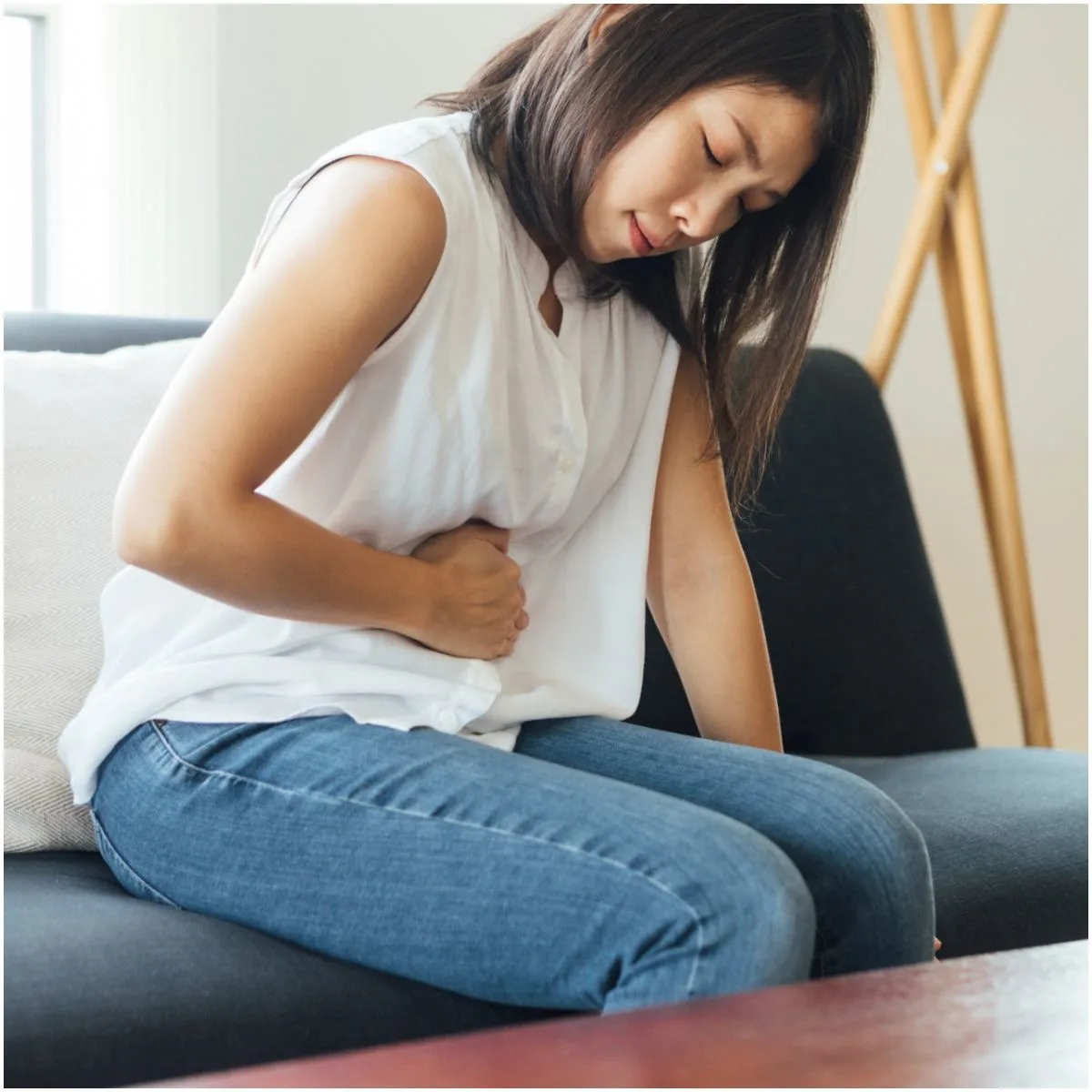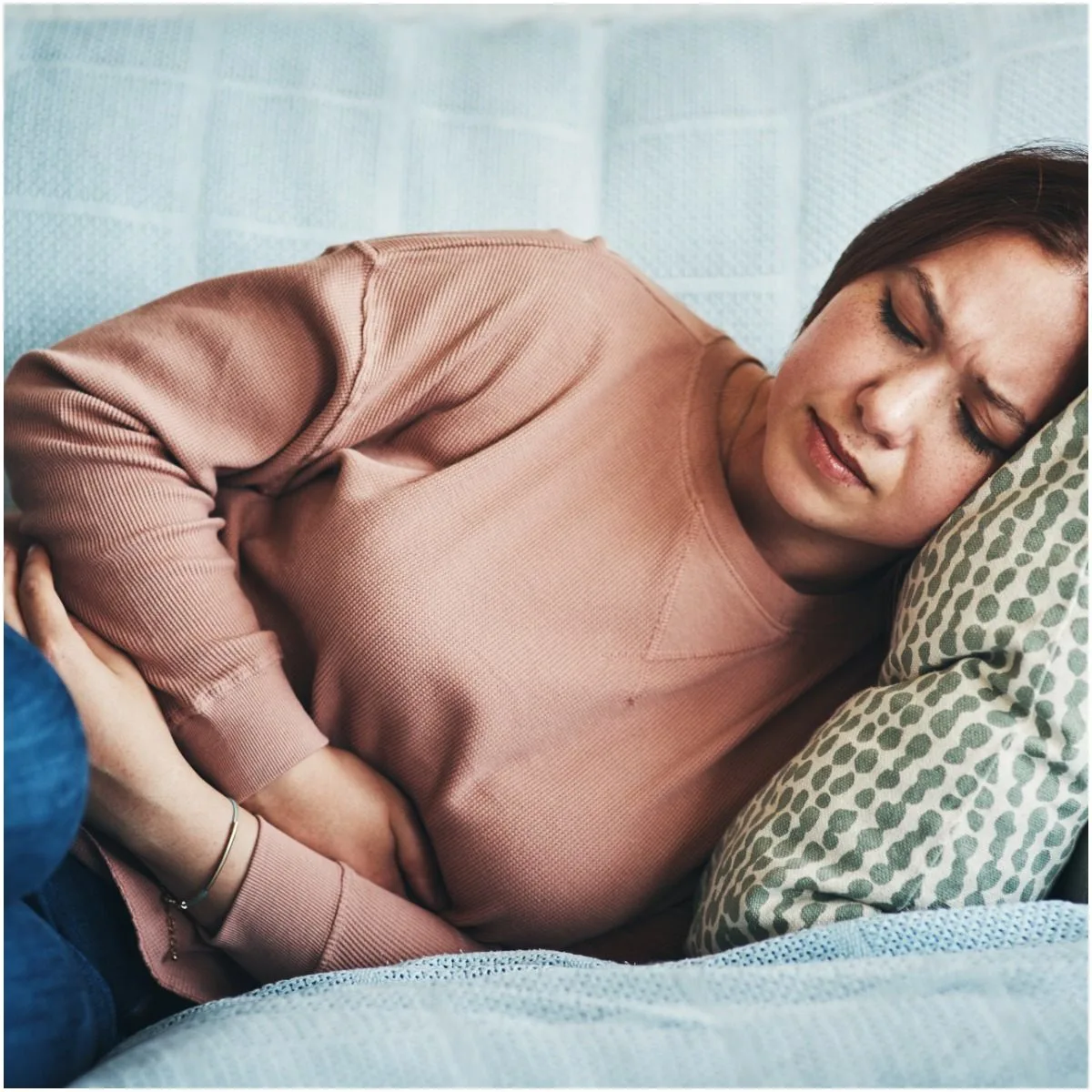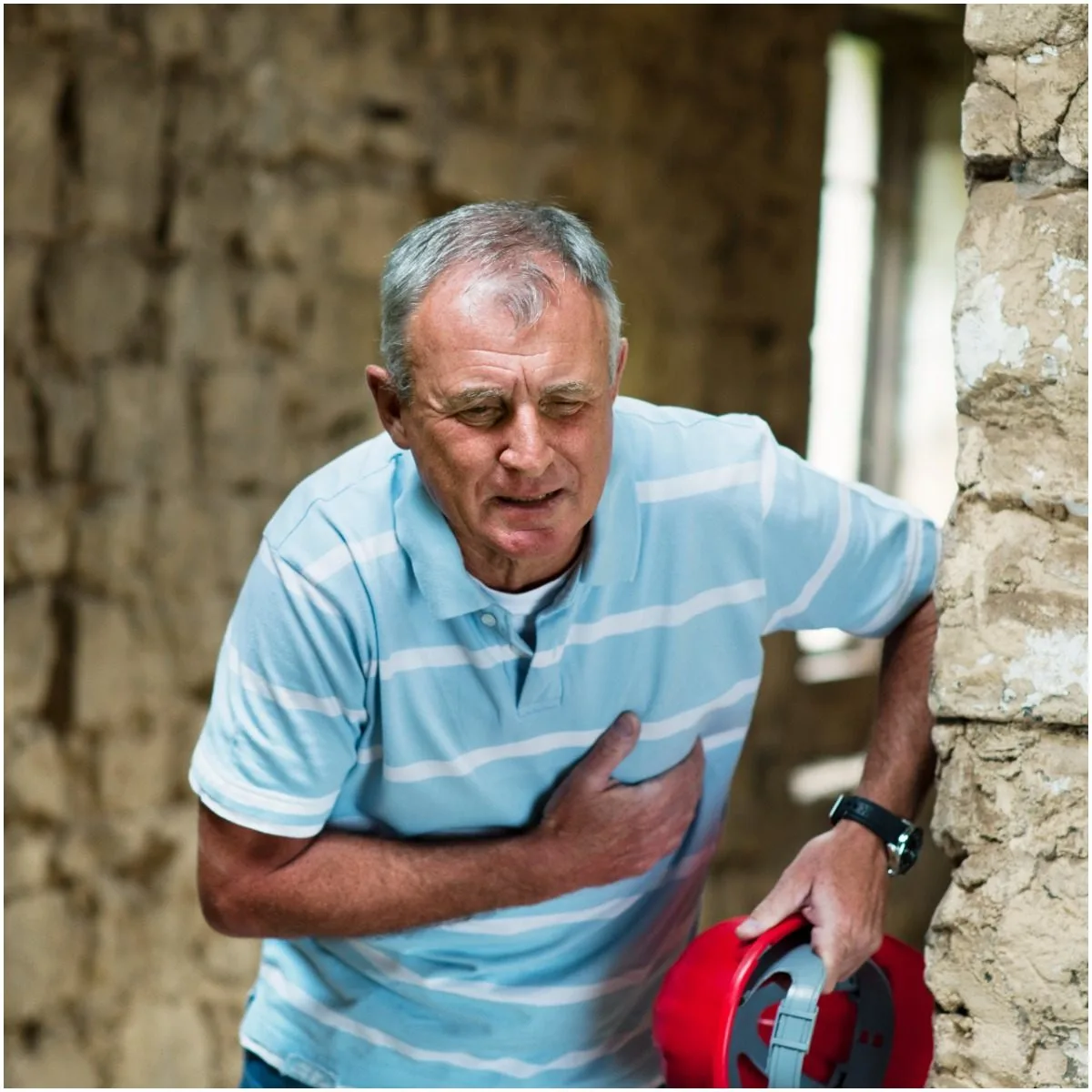Left Shoulder Pain After Eating:
Introduction
Have you ever experienced pain or discomfort in your left shoulder after eating?
There could be many reasons why, depending on your medical history and circumstances.
In this article, we’ll break down the most common reasons as to why you might be experiencing pain, how to alleviate discomfort, and when to seek medical advice.
Overeating

@Getty
It is possible that overeating could be the cause of your shoulder pain, which is what medical experts call a referred pain.
This means that whilst the pain feels like it originates from your left shoulder, it might actually be caused by a problem somewhere else in your body.
The digestive system is complex and involves numerous organs, so the problem could actually lie within your stomach, pancreas, heart, or gall bladder.
By overeating, you might be stretching your stomach, which places strain on the surrounding tissues and could cause discomfort in your shoulder.
Other common side effects of overeating include acid reflux, heartburn, or GERD, all of which can create shoulder pain.
There are many symptoms of overeating, including:
- Cramp
- Bloating
- Abdominal discomfort
- Diarrhea
- Gas
- Belching
- Nausea
- Inability to breathe fully
Remedies
If you think you’re overeating, try to eat slower to see if it improves your digestive system.
When you eat slowly, your body releases digestive secretions slower, which reduces the chances of acid reflux, heartburn, and excess gas. You will also be much less likely to overeat, as your stomach will be sending signals to your brain that you’re full.
You could also try eating smaller meals more regularly. It’s recommended to try eating five small meals a day to reduce gastro discomfort.
Gas
Another type of referred pain that could be causing discomfort in your left shoulder is trapped gas.
Gas, or flatulence, is a normal side-effect of eating. As the bacteria in your digestive system begins to break down the food in your stomach, it can release gas into the large intestine.
Whilst extra gas can be normal and non-life-threatening, excessive trapped gas can be extremely painful.
Symptoms of gas can include:
- Bloating
- Distention
- Excessive burping or flatulence
- Abdominal pain
- Cramp
- Chest pain
- Noisy stomach
Remedies
It is recommended to walk after you eat to alleviate the pain, as movement will help the gas to pass.
If walking does not help, you could try a range of over-the-counter anti-gas medications, which have been designed for both pre and post eating.
If your discomfort is mild, you can also try drinking a soothing tea, such as peppermint or chamomile, which is known to improve digestion.
Acid Reflux
Acid Reflux is highly common amongst adults. It happens when the muscles in your oesophagus relax, which then allows stomach acid to enter your oesophagus.
Symptoms of Acid Reflux include:
- Nausea
- Vomiting
- Shortness of breath
- Abdominal pain
- Neck pain
- Acidic feeling in the throat/ mouth
Remedies
H2 Blockers and Antacids are an over-the-counter medications that are designed to help alleviate conditions caused by excess stomach acid, including Heartburn and Gastroesophageal Reflux Disease (GERD).
H2 Blockers can reduce the release of stomach acid by 70% in 24 hours. The best time to take an H2 Blocker is 30 minutes before eating.
You should see a doctor for treatment if you are experiencing acid reflux on a regular basis and medication does not help, as it can progress to Gastroesophageal Reflux Disease (GERD) if left untreated.
If it does progress to GERD, you will most likely have intense heartburn, which can cause pain in your back and shoulders.
READ MORE: Famous People with Myasthenia Gravis
Heartburn

@Getty
The most common cause of Heartburn is overeating, but you might also be consuming food and drink that your body does not agree with, called ‘trigger foods.’
These triggers can include: fatty or spicy foods, sugary drinks, coffee, alcohol, and typical ‘junk food.’
Heartburn is caused by an influx of stomach acid and can create a burning sensation in your chest and discomfort in your shoulder.
Symptoms of heartburn include:
- Chest pain
- Pain in the left or right shoulder
- Acid reflux
- Nausea
If you suffer from regular and intense heartburn, it is possible it has progressed to GERD (see further below).
Remedies
To alleviate heartburn, try taking the same H2 Blockers or Antacids as recommended for Acid Reflux. If it persists, visit your doctor.
READ MORE: Apple Cider Vinegar Enema – Side Effects
Gastroesophageal Reflux Disease (GERD)

@Getty
GERD is a medical term for Gastroesophageal Reflux Disease, which can cause chronic heartburn.
It is a term used to describe when the acid in your stomach flows back up your esophagus and causes irritation.
The heartburn and chest pain can be so intense, some patients with GERD have thought they were having a heart attack.
It is common for those who suffer from GERD to feel discomfort after eating ‘trigger foods,’ as well as overeating. Signs of GERD can include:
- Heartburn
- Chest pain
- Acid in your esophagus
- Difficulty swallowing
- Vomiting
Whilst occasional heartburn is common in adults, if you experience it after every meal, you may be suffering from GERD and will need to visit your doctor for tests, as surgery may be required.
Remedies
If you have a mild case of GERD, you might respond well to over-the-counter medication, as well as changes to your diet, such as drinking more water, exercise, eating healthier, and avoiding trigger foods. Talk to your doctor to discuss how to improve your lifestyle for GERD.
However, you should seek medical advice urgently if you are experiencing chest pain, shortness of breath, jaw pain, or arm pain, as these might be a heart attack.
READ MORE: Kerydin vs Jublia
Gallbladder and Gallstones
A more serious reason behind your shoulder pain could be the gallbladder, which is a small organ underneath your liver that produces bile.
Every time you eat, your body needs bile to digest the food, and if there is a problem with your gallbladder, this can cause pain and discomfort in your upper body, including your shoulders.
Typical symptoms of a malfunctioning gallbladder include:
- Back, chest, or shoulder pain
- Fever
- Vomiting
- Yellow-tinged skin or eyes
If you suspect you might have a problem with your gallbladder, contact your doctor immediately.
Gallstones are created when the bile hardens into a mass, called a gallstone. They can be tiny or as big as a golf ball, and left untreated, can have fatal consequences.
Symptoms of gallstones include:
- Nausea
- Vomiting
- Abdominal pain
- Shoulder pain
- Fever
- Indigestion
- Jaundice
If your gallbladder is inflamed, it affects your phrenic nerve, which is connected from your abdomen all the way up to your neck. If you then eat a trigger food, the nerve becomes irritated, and can cause referred pain in your shoulders.
Remedies
If you suspect you have an issue with your gallbladder, contact your doctor immediately, as you may require surgery or prescribed medication to treat the issue.
READ MORE: Famous People With Albinism
Pancreatitis
Another serious diagnosis of shoulder pain could be Pancreatitis.
The pancreas is an important organ within your digestive system, as it secretes insulin to control levels of sugar within your blood.
Pancreatitis is when this organ becomes inflamed, which can cause pain in the left shoulder during your meal or soon after.
Signs include:
- Left shoulder pain
- Stabbing back pain
- Abdominal pain or burning sensation
- Nausea
- Vomiting
- Diarrhea
- Cramp
Remedies
If you suspect you might have pancreatitis, contact your doctor immediately to arrange for a consultation and tests.
READ MORE: Sprite vs 7UP
Heart Attack

@Getty
It is more common to have a heart attack while eating or soon after.
This is due to the body needing more oxygen to digest your food, which requires the heart to pump more blood around your body.
Symptoms can include:
- Shortness of breath
- Chest pain
- Neck and jaw pain
- Arm pain
- Nausea
- Vomiting
- Dizziness
- Irregular heartbeat
Remedies
If you think you are experiencing a heart attack, contact emergency services immediately.
READ MORE: Foods That Start With X, Y, Z, and U
When to seek medical advice
As mentioned, there are many reasons why you could have shoulder pain after eating, which are very treatable and non-life-threatening, such as overeating, trapped gas, and acid reflux.
Try the suggested home remedies and over-the-counter medication to eliminate the possibility of these diagnoses.
If your left shoulder is still in pain after eating, you should consult your doctor immediately to ensure you do not have a more serious condition, such as Pancreatitis or Gallstones.
If in doubt, always seek medical advice from your doctor.
READ THIS NEXT: Famous People With Huntington’s Disease

Lois Perkins
Thursday 26th of January 2023
This only happens every few months and lasts from 15 to 30 minutes